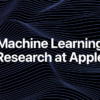Visa has significantly broadened the scope of its Visa Intelligent Commerce framework across the Asia Pacific region, marking a pivotal advancement in the realm of agentic commerce. This innovative sector allows artificial intelligence (AI) agents to shop and make payments on behalf of consumers. The updated platform introduces enhanced security protocols and sets the stage for pilot projects slated for launch by early 2026.
Understanding AI Commerce Ecosystems
Visa Intelligent Commerce comprises a suite of integrated APIs and partner programs that leverage Visa’s extensive infrastructure to facilitate secure, consent-driven payments executed by AI agents. Consumers can authorize these agents to transact on their behalf through features like tokenization, authentication, payment instructions, and transaction signals.
Recent data indicates that AI-driven traffic to retail websites surged by over 4,700% in the past year. Furthermore, 85% of shoppers who have utilized AI for their purchases reported enhanced shopping experiences. Visa is committed to ensuring that its infrastructure supports the growth of AI-driven commerce throughout the region, enabling connected AI agents to transact using Visa’s 4.8 billion payment credentials at merchant locations globally.
Consumers can soon direct AI agents to book travel or purchase tickets, with these payments securely and automatically processed over Visa’s network.
Enhanced Merchant Security Protocols
Central to the new framework is the Trusted Agent Protocol, designed to help merchants recognize and verify AI agents that demonstrate genuine transaction intent. This protocol employs agent-specific cryptographic signatures to ensure secure transactions, effectively distinguishing between legitimate agents and malicious bots while maintaining visibility of the consumer behind each transaction.
The Trusted Agent Protocol has been developed as an open, low-code solution, allowing merchants to integrate these capabilities without overhauling their existing infrastructure. The ultimate aim is to provide transparency and security, enabling merchants to handle AI-driven transactions with the same level of confidence as traditional consumer purchases.
“Agentic commerce is transforming the very fabric of online payment transactions, requiring a unified ecosystem to unlock its full potential. With Visa Intelligent Commerce and its cornerstone, Trusted Agent Protocol, Visa is connecting consumers, AI agents, and merchants through secure, scalable solutions. This ensures every interaction is verified and transparent, empowering all parties of the purchase to embrace this future with confidence,” stated T.R. Ramachandran, Head of Products and Solutions, Asia Pacific, Visa.
Strategic Industry Partnerships
To further its ambitions in agentic commerce, Visa is collaborating with key players in technology and payment sectors, including Ant International, LG Uplus, Microsoft, Perplexity, Stripe, and Tencent. The goal is to create an interconnected ecosystem that merges AI agents with traditional payment infrastructures.
As regulatory conditions and ecosystem readiness evolve, Visa plans to implement pilot programs across the region, aiming for deployment by early 2026. The company asserts it is actively working throughout its network and with industry partners to push forward the capabilities of AI-powered payments for a new generation of AI-native consumers.
As the landscape of online transactions continues to evolve through AI innovations, Visa’s proactive approach positions it as a pioneer in facilitating secure and efficient commerce in the age of intelligent agents. The anticipated developments in agentic commerce could reshape consumer experiences, offering unprecedented convenience and security.
 AI Pilot Program Launches at Northern Lincolnshire Trust to Improve Fracture Diagnosis
AI Pilot Program Launches at Northern Lincolnshire Trust to Improve Fracture Diagnosis HPE Networking Unveils Agentic AI ‘Self-Driving Networks’ to Transform EMEA Hospitality
HPE Networking Unveils Agentic AI ‘Self-Driving Networks’ to Transform EMEA Hospitality AI Revolutionizes Airport Operations with Intelligent Tech Stack Integration
AI Revolutionizes Airport Operations with Intelligent Tech Stack Integration Google Launches AI Shopping Tools to Streamline Holiday Gifting Experience
Google Launches AI Shopping Tools to Streamline Holiday Gifting Experience Eli Lilly and NVIDIA Launch 1,000+ GPU AI Supercomputer for Drug Discovery Innovations
Eli Lilly and NVIDIA Launch 1,000+ GPU AI Supercomputer for Drug Discovery Innovations




































































